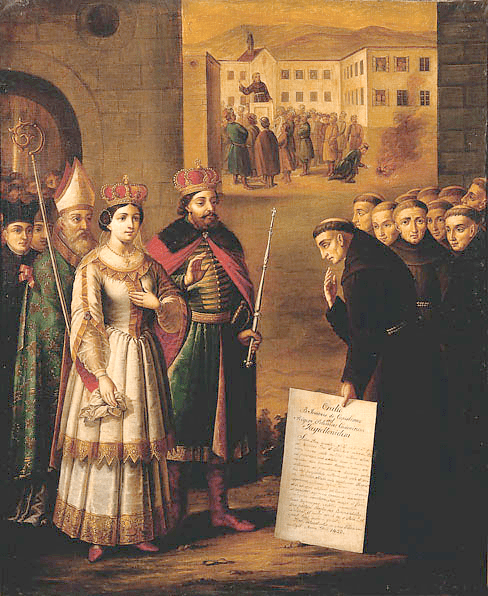When Casimir IV Jagiellon, the King of Poland, died in 1492, nobody could’ve predicted the death that would follow the reopening of his tomb half a millennium later. Having rotted away into a biological bomb of pathogen potential, it became a hazardous place for the living to poke around in. Unfortunately, in 1973, that’s exactly what a group of archaeologists did.
“The Curse Of The Mummy” is such a popular myth that it’s launched swathes of film, TV, and literature, detailing how the undead wish to harm us from beyond the tomb. When Tutmania seized the planet following the discovery of Tutankhamun, it’s not surprising that the world was equally gripped by the death of the expedition’s benefactor, Lord Carnarvon, soon after.
One theory about Carnarvon’s sudden death was that Tutankhamun’s cool and dark tomb contained spores of aspergillus, a very common fungus that can’t normally get past a healthy human immune system. The leading theory is that he succumbed to an infection caused by a mosquito bite that led to pneumonia, but finding fungi in tombs isn’t without precedent.
Enter, Casimir IV Jagiellon, Grand Duke of Lithuania and King of Poland.

The story that goes in the 1970s, archaeologists weren’t often given access to sites of historical significance. That changed in ’73, Grunge writes, when the then-archbishop of Krakow, Pope John Paul II, granted a team of 12 researchers to examine the remains of Casimir.
According to researchers at Guy’s King’s and St Thomas’ School of Medicine, of the 12 scientists present when the tomb was opened, 10 died within weeks. They also report that a variety of fungi was cultured from the tomb.
A 2015 paper touched on the opening of Casimir’s tomb, reporting that many researchers that opened the Wawel crypt where he was buried developed health problems, several of whom later died. To explore the world of crypt fungi ecosystems, the authors tested samples from a cemetery and the burial chapel of the Buchholtz family in Supraśl, Poland. They found extremely high levels of mold in the air, which was the right temperature and humidity for fungal growth.
“In the air samples collected inside the crypt, the fungi isolated included Penicillium sp., Candida sp., Aspergillus sp., Acremonium sp., Scopulariopsis sp., Fusarium sp., Aspergillus niger, Cladosporium sp., Alternaria alternata, Mucor sp., Aspergillus nidulans, Rhodotorula sp., and Verticillium sp,” the authors concluded.
“Assessment of fungi in the air samples and different surfaces of the crypt revealed very high levels of molds in the air samples that may be dangerous for tomb workers health.”
Evidence of fungi’s longevity in such spaces has been documented since at least 1962, when a biologist from Cairo University, Ezzedin Taha, found evidence of toxins from fungus in ancient tombs and the preserved tissues of mummies. Taha reported that in cases where fungal spores got to human lungs, they caused high fever, infections, and inflammation of the respiratory tract.
While The Curse Of The Mummy might not be capable of tracking down tomb raiders and archaeologists, it seems there’s some legitimacy to the threat of crypts and the musty air they contain. Now, who’s going to tell Brendan Fraser?
Source Link: The Opening Of King Casimir’s Biological Bomb For A Tomb Ended Very Badly